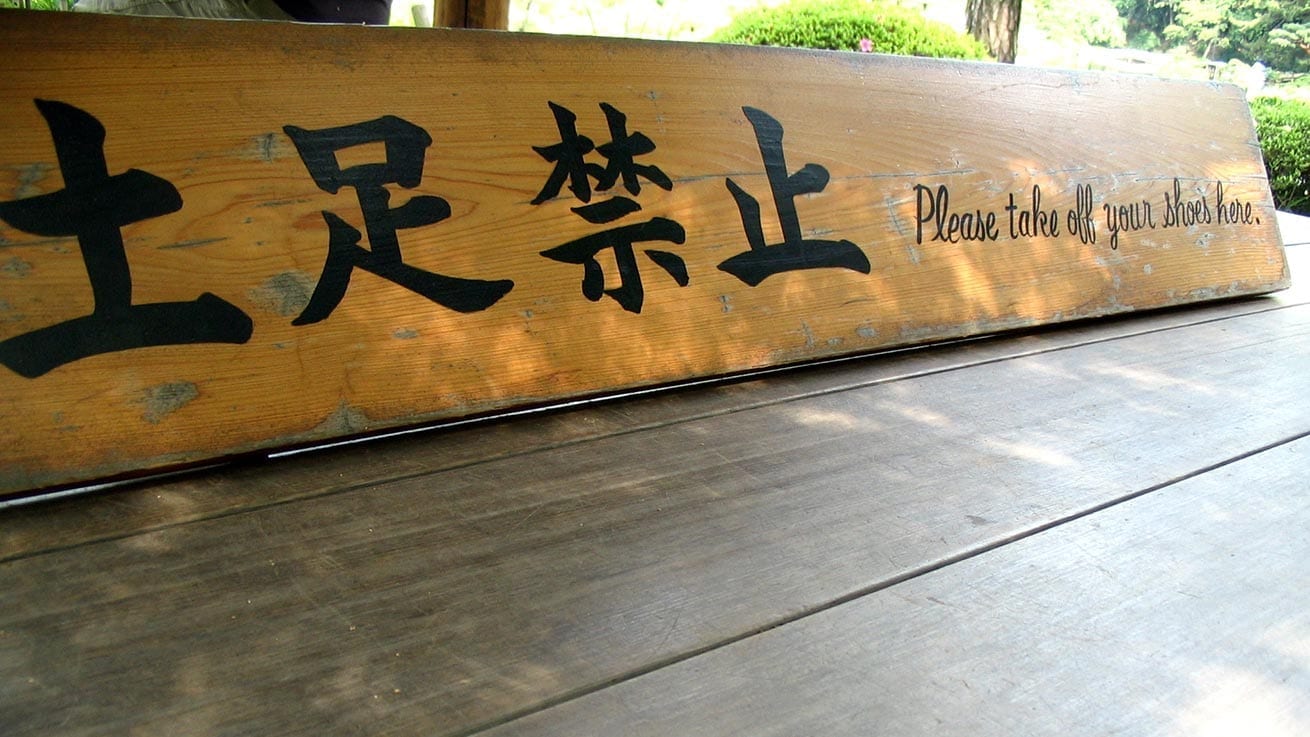
Japanese Etiquette Tips, Or How Not to Stand Out As Gaijin
After living in Japan for a while we have started becoming accustomed to the Japanese way of doing things. Japan is one of the most orderly and polite societies you will ever visit. But many local conventions are a lot different from what you may be used to, especially in western countries. To help you fit in better we want to share a few basic Japanese etiquette tips with you to avoid you standing out as a Gaijin!
Of course, our Japanese etiquette tips are not intended to cover every last aspect of public behavior in Japan. We most likely will add more specific posts regarding how to get a train ticket, how to ride the Shinkansen, and many other topics over time. For now these are simply a few tips to help you fit in better. By doing so you will not only have an easier time fitting in, but you will also make a much better impression on your Japanese hosts. Which is what you want, isn’t it?
Don’t get us wrong; you will not get kicked out unless you break the law or commit some other serious offense against Japanese sensibilities. But foreign visitors to Japan, especially those who are visiting for the first time, can inadvertently cause offense without meaning to do so. Hopefully our Japanese etiquette tips will help you make a better first impression.
Basic Japanese Etiquette Tips
A Few Basic Rules
Mindfulness of Others
Let’s start our Japanese etiquette tips with a very basic rule. Japan is a small and very crowded country, which means you will always be surrounded by other people. Therefore you need to be mindful of others at all times. Shouting, screaming, or making other loud noises in public will immediately label you as a Gaijin, or foreigner. So if you are out in public keep your voice down. Exceptions are attending sporting events, especially Sumo or Baseball, two of Japan’s favorite pastimes.
Say Sumimasen
This is one of the most important swords to know in Japan. Our Japanese etiquette tips would not be complete without teaching you to say “Sumimasen” or pardon me. It is the polite way to squeeze through throngs of people, fit into a crowded train or subway, or simply indicate that you are lost and need help.
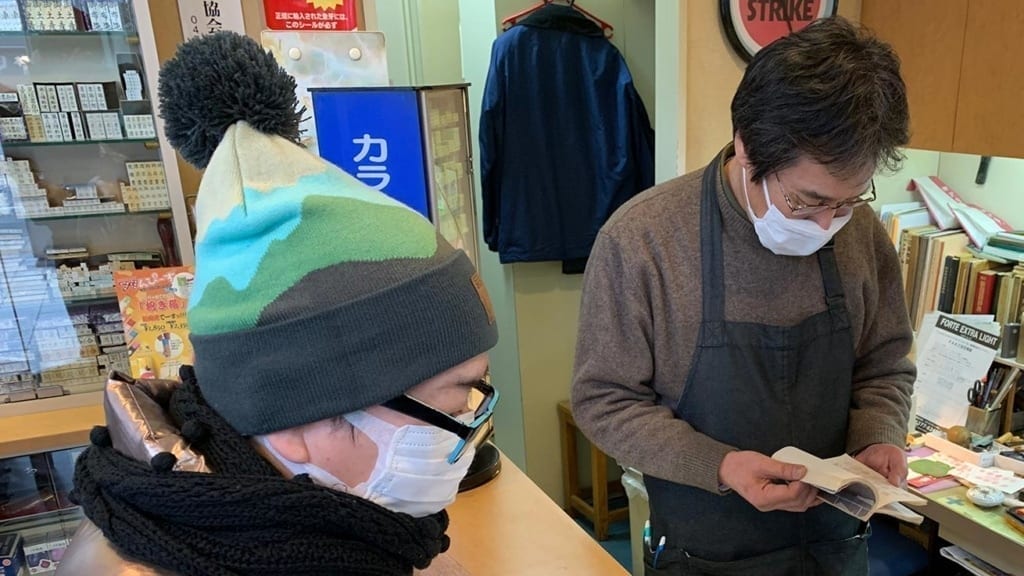
Wear a Mask in Public
Many people have asked about this, so we included this in our Japanese etiquette tips, In winter influenza can be a problem, especially in northern Japan. And in summer air pollution can be a problem. So many Japanese wear masks when in public, especially in winter. This prevents the spread of germs, plus there are a few other benefits. Don’t worry about makeup or shaving; just slap a mask on and you are set to go.

Don’t Litter
Japan is one of the cleanest countries in the world, yet you will not find trash cans. Instead Japanese carry a small plastic bag with them. Any garbage that you create, such as a gum wrapper or tissue from blowing your nose you put into the bag, and take home with you to dispose of. Littering will get you into big trouble, so don’t even think about it!
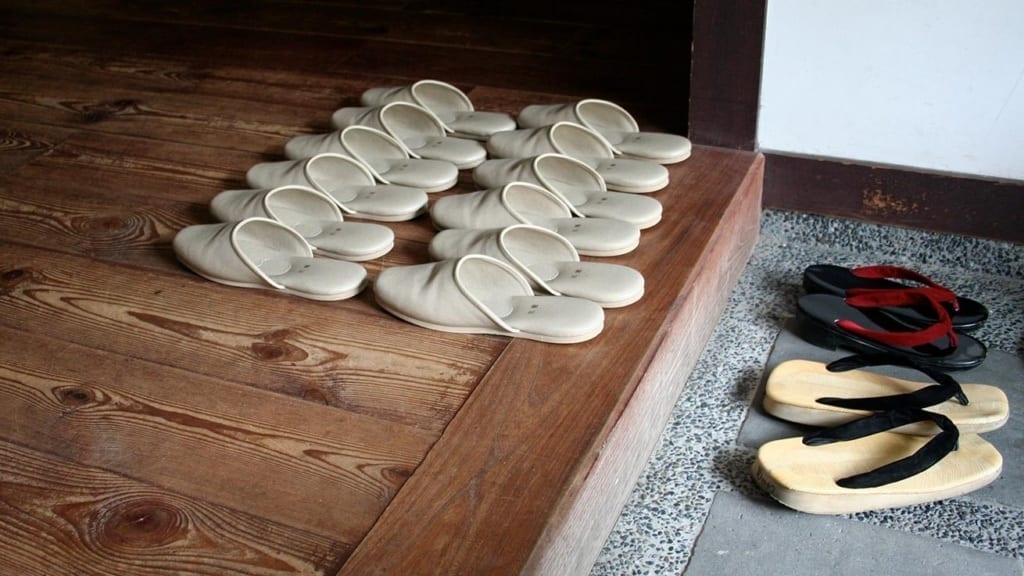
Take Off Your shoes!
When you enter a Japanese home, and even many restaurants, you must take off your shoes. This avoids spreading dirt from the outside in the fastidiously clean interior spaces. Not removing your shoes upon entering such an establishment or private home is one of the most serious faux pas you can commit in Japan, and therefore one of our most important Japanese etiquette tips!
Carry Cash
OK, so maybe this is not exactly a Japanese etiquette tip, but it is still important to note. Many smaller Japanese stores, izakayas, and the like do not accept credit cards. But many of them don’t state that policy until it is time to pay up. So save yourself some unneeded and unwanted embarrassment and be sure to carry enough cash with you at all times.
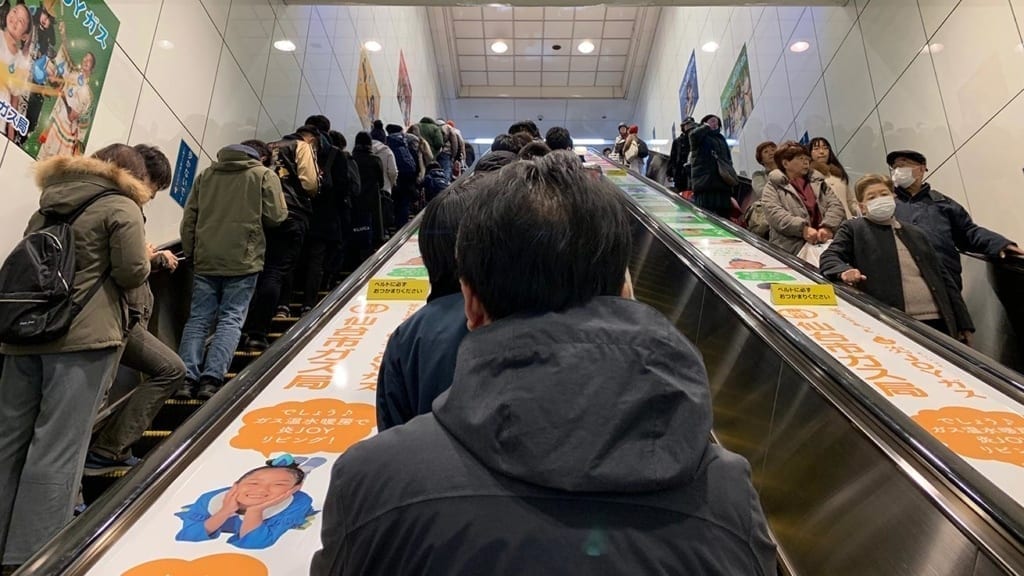
Stand on the Left
This is a handy Japanese etiquette tip for you; when riding an escalator, or even taking the stairs, always stand on the left side in single file. Do not block the right side with your baggage or packages. That way people in a rush don’t need to ask you to move aside.
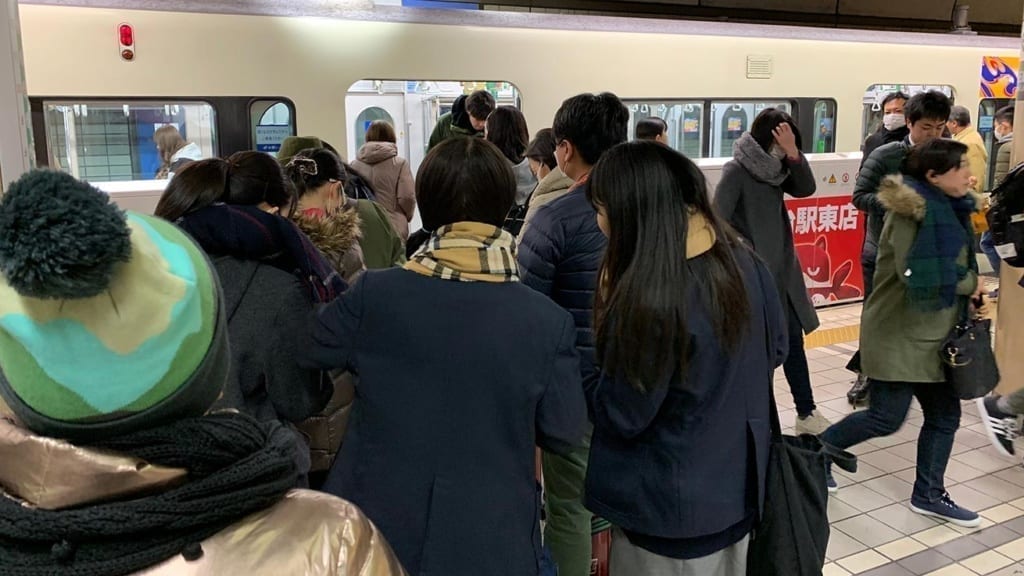
Don’t Block Doors
When you get on a subway, train, or elevator in Japan be sure to stay to one side. That way people getting off can exit faster, which means you can get on faster. Simple, isn’t it?
Riding The Train
Next in our Japanese etiquette tips are a few basic rules for riding the train. Most likely you will take the train from Narita airport to Tokyo Station when you arrive, and trains are a fast, convenient and cheap travel option. But they work a little different in Japan than you might be used to.
Plan Ahead
Get your train ticket and find out which platform your train or Shinkansen uses, and which carriage your seat is in. Especially Shinkansen trains only stop for a minute or two, and they don’t wait! The same goes when you arrive. Don’t wait in your seat until the train pulls into the station, or you will miss getting off! Be sure to be ready, with everything you need ready to go as well. Stand at the door, and exit as soon ass the train stops. Passengers waiting to get on expect you to get off first, and will make room for you. One important note: Japanese train doors do not open automatically. You need to press the green button. And here is another Japanese etiquette tip for you; be sure to hit the close button after you get on.
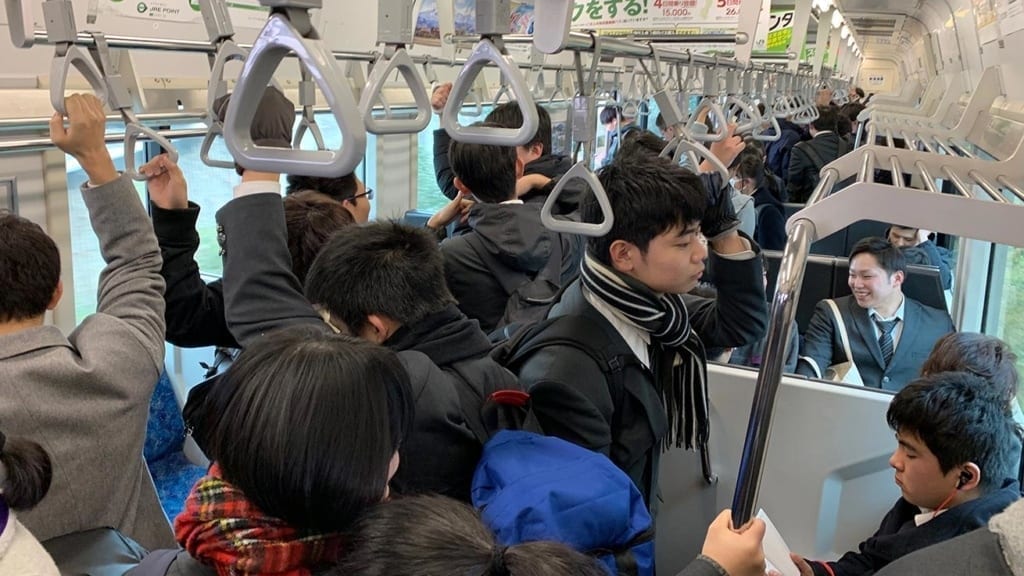
On The Train
Japanese trains can be incredibly crowded. So follow these basic rules:
- Turn your cellphone ringer off.
- Talk quietly, if at all.
- Keep all bags and other belongings as close to you as possible.
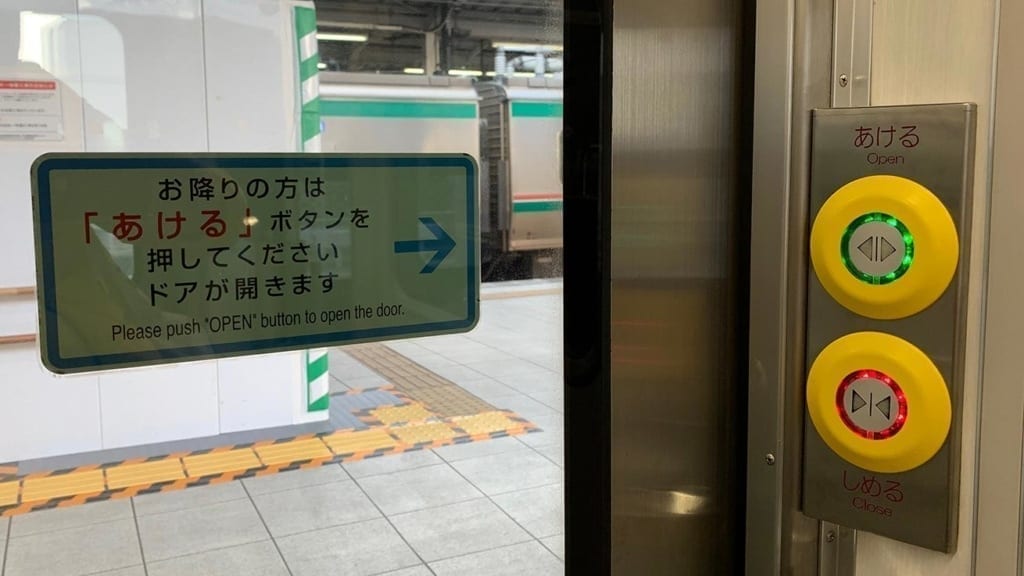
And here is one more important Japanese etiquette tip for you; since trains are so crowded at times keep your hands visible at all times if you can. That way you can defend yourself against false accusations of either touching someone inappropriately, or putting your hand in someone else’s bag or purse!
In Restaurants
Japanese restaurants, regardless if you go to a fancy sushi place or a mom-and-pop Ramen shop are a wonderful way to experience the sheer variety of Japanese cuisine. But once again, things work a bit different here. So our Japanese etiquette tips would not be complete without a few pointers on what to do and not do do in a restaurant.
Ordering from a Waitress
Many foreigners complain that service in Japanese restaurants is terrible. It actually isn’t; foreigners just don’t understand how it works. In Japan restaurant staff gives you time to settle in, take your coat off, and peruse the menu offerings before they come and take your order. So you need to let them know when you are ready. Once you are ready simply look at the server hovering a polite distance away, and say “Sumimasen!”
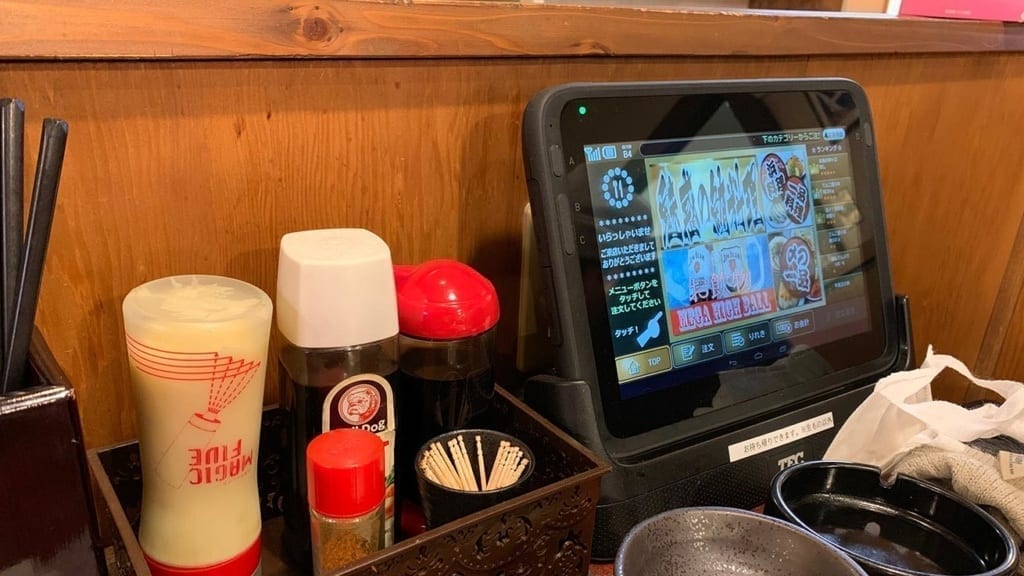
Ordering from a Machine
Especially Japanese fast food restaurants and izakayas may not have table service for ordering. In that case you may need to order from a table-side tablet, vending machine or kiosk before you sit down. Simply make your selections by pressing the appropriate buttons, pay, and hand the ticket or tickets confirming your order to the person behind the counter. That’s it! You will either need to pick up your order at the counter when ready, or it will be brought to your table.
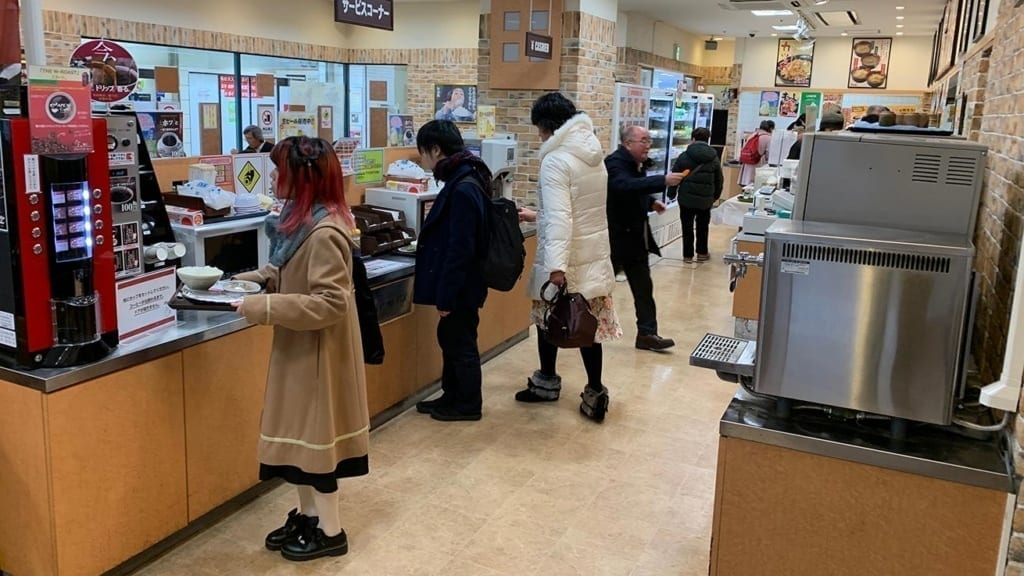
Self Serve Restaurants
Self-serve or cafeteria style restaurants are very popular in Japan, so I want to provide you with some Japanese etiquette tips for ordering, and what to do when you are done eating. Think back to your high school or college days, and you will quickly get the hang of this. Simply pick out your food and drink items, and walk up to the cashier. For anything that needs to be prepared, such as Ramen for instance, you will receive a little token. When your order is called exchange the token for your food.
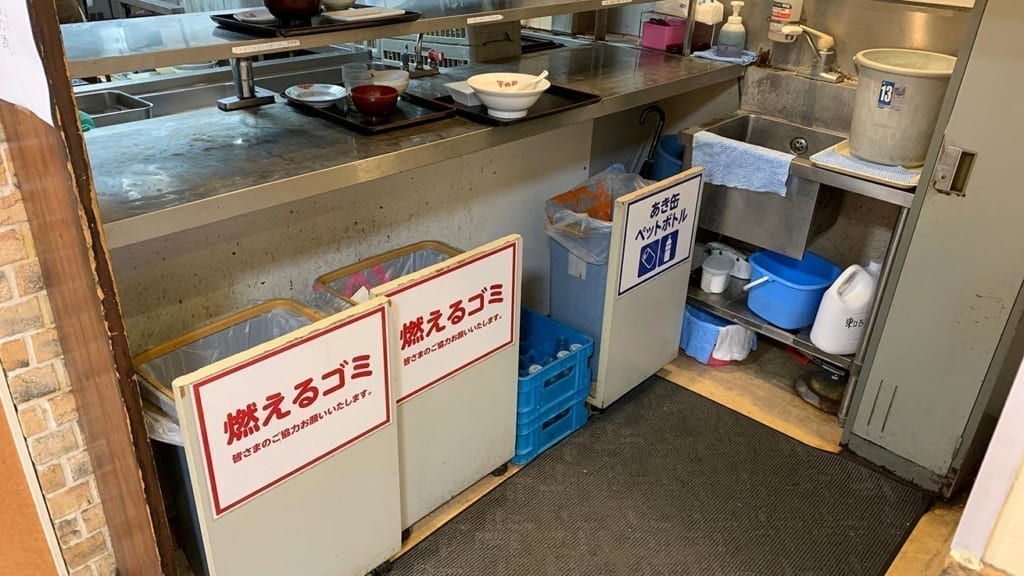
Please note that this type of restaurant does not provide table service, and it is considered terribly rude to simply leave your dirty dishes on the table for the next person to clean up! Instead look for the dish and waste disposal counter, and bring your dirty dishes there. Be sure to separate your dishes from your trash and recycling, and place everything in the appropriate bin or container.
Final Thoughts on Japanese Etiquette Tips
Please note that our first installment of Japanese etiquette tips are neither totally comprehensive, nor are they intended to be. We simply want to provide you with a basic guide to Japanese etiquette and customs so you will fit in better on your first or next visit. And these tips are based on our life in the northern Japanese city of Sendai. Other Japanese cities, especially Tokyo, may have different customs and conventions.
So the last of our Japanese etiquette tips is to simply observe what locals do around you, and do your best to follow them. If in doubt remember this, a polite Sumimasen will get you a lot further in Japan than simply trying it your way. Unless you want to stand out as a Gaijin, of course!
Happy Travels!
